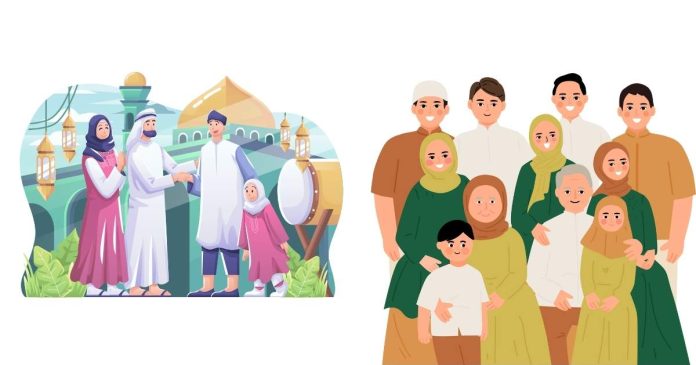The phrase “Ya Ali Madad” is a commonly used greeting and invocation in certain Muslim communities, particularly among Shia Muslims and Ismailis. It is a deeply spiritual phrase that combines reverence for Imam Ali, a central figure in Islam, with an appeal for help and guidance. The term carries both religious and cultural significance.
Breaking Down the Phrase
- “Ya” (یا):
- This is an Arabic word used to call upon or address someone, often with a sense of reverence or urgency. It is equivalent to saying “O” in English when invoking a name or title.
- “Ali” (علي):
- Refers to Imam Ali ibn Abi Talib, the cousin and son-in-law of Prophet Muhammad (peace be upon him). Ali is highly revered in Islam, particularly by Shia Muslims, as the first Imam and a symbol of wisdom, justice, and spiritual guidance.
- “Madad” (مدد):
- An Arabic and Persian word meaning “help” or “assistance.” It signifies a request for support, guidance, or intervention in times of need.
Literal Translation:
“Ya Ali Madad” translates to “O Ali, help!” or “Ali, provide assistance!”
Religious and Spiritual Significance
The invocation “Ya Ali Madad” holds profound spiritual meaning for those who use it:
- A Call for Divine Assistance:
- While the phrase explicitly calls upon Imam Ali, it is understood by many as an indirect appeal to God. Ali is viewed as a spiritual intercessor, someone who can mediate between the individual and the divine.
- Connection to Imam Ali’s Attributes:
- Imam Ali is regarded as a paragon of courage, wisdom, and justice. Calling upon him is seen as seeking inspiration and strength to embody these qualities in one’s own life.
- Shia and Ismaili Tradition:
- In Shia Islam, Imam Ali is considered the rightful successor to Prophet Muhammad and a divinely appointed leader. The invocation reflects devotion to the Imamate and recognition of Ali’s spiritual authority.
- Among Ismailis, “Ya Ali Madad” is also a common greeting, symbolizing unity and shared faith. The response to this greeting is typically “Mowla Ali Madad”, meaning “May Ali help you as well.”
Cultural and Communal Context
- A Greeting of Solidarity:
- In many communities, “Ya Ali Madad” is used as a greeting, much like saying “Salam” (peace) or “Hello.” It reflects a shared spiritual identity and invokes blessings for both the speaker and the listener.
- Expression of Hope and Trust:
- The phrase is often used in prayers, moments of difficulty, or when seeking guidance, reflecting trust in divine support and the spiritual bond with Imam Ali.
- Cultural Variations:
- While primarily associated with Shia and Ismaili Muslims, variations of the phrase may also be found in Sufi traditions and among other Muslim groups who venerate Imam Ali.
Criticism and Misunderstandings
Some Muslims from other sects may critique the use of “Ya Ali Madad,” interpreting it as shirk (associating partners with God). However, those who use the phrase argue that it is not worship of Ali but a request for his intercession, a concept rooted in Islamic tradition.
“Ya Ali Madad” is a powerful phrase rich in spiritual meaning, symbolizing faith, devotion, and a plea for assistance from Imam Ali as a divine intercessor. Whether used as a greeting or a prayer, it reflects deep reverence for one of Islam’s most revered figures and underscores the enduring spiritual connection between believers and the legacy of Imam Ali.


